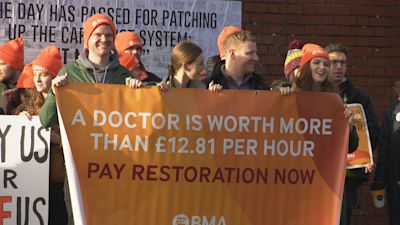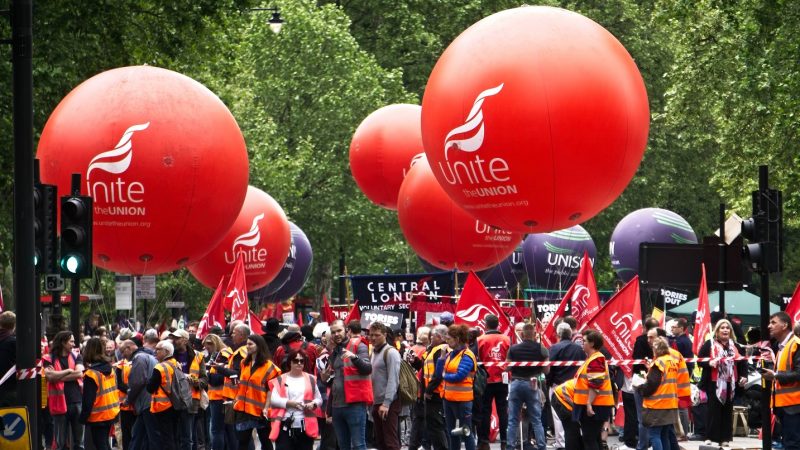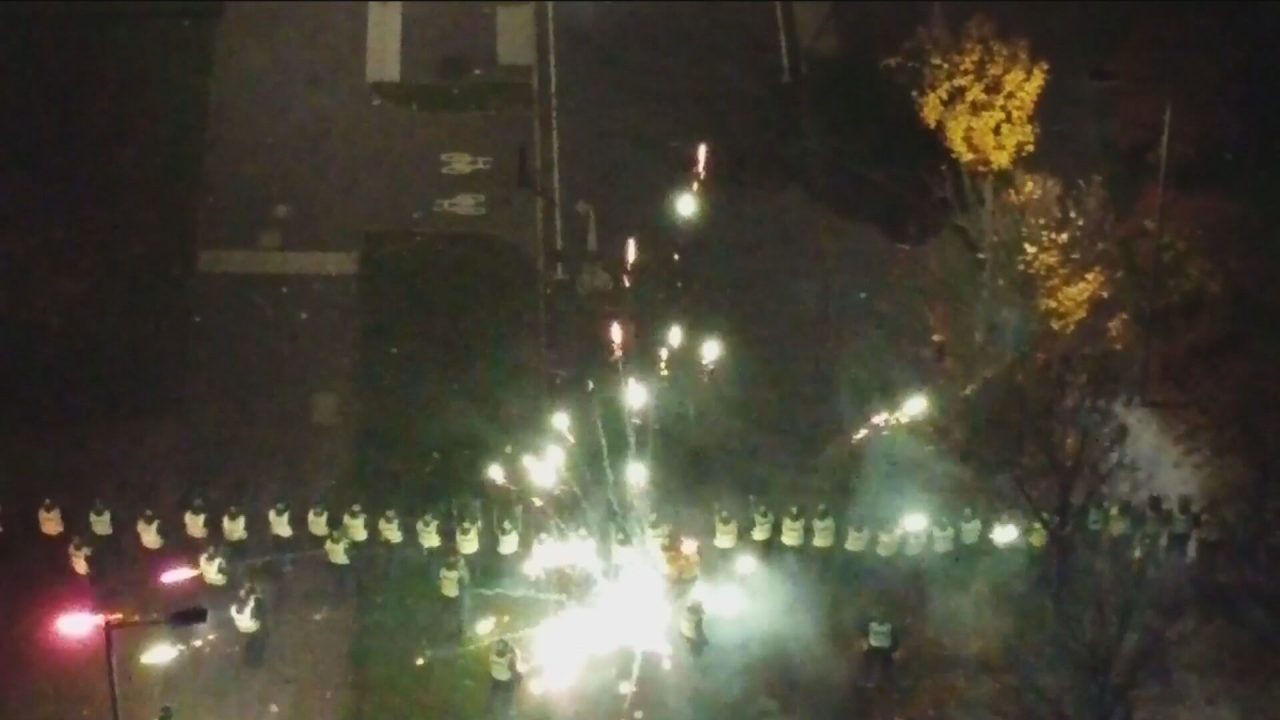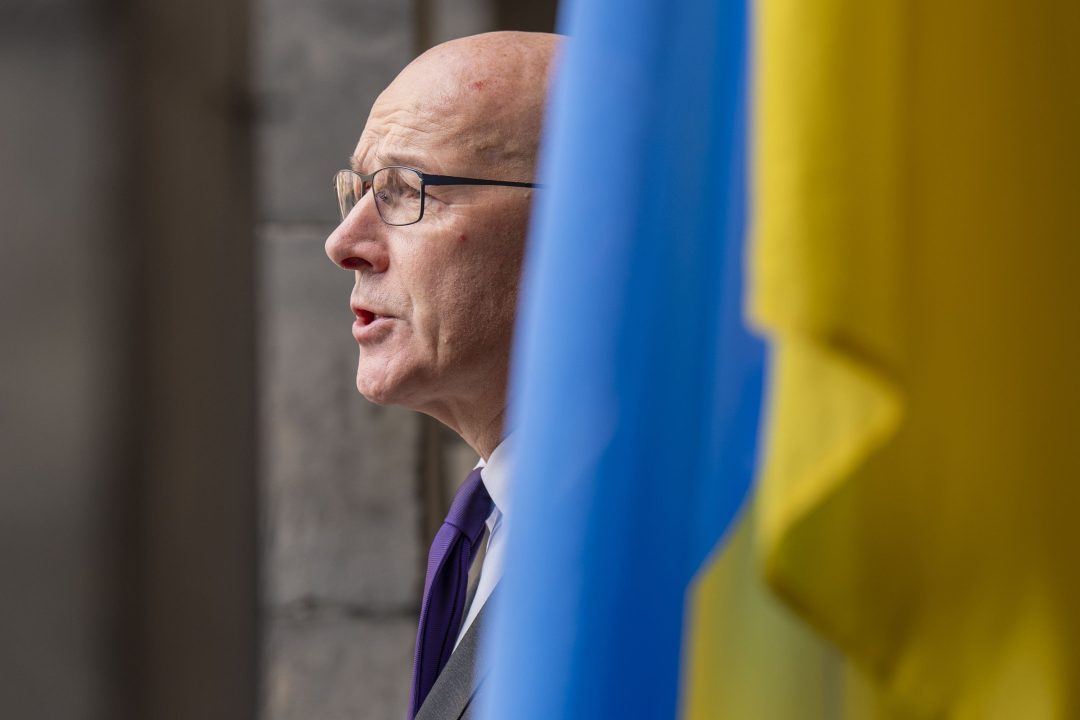Germany introduced the supply chain act last year to make companies respect human rights in their global supply chains. During a visit to Pakistan, Development Minister Svenja Schulze said the law was working.
Germany's Development Minister Svenja Schulze on Friday rejected accusations that the country's supply chain act was "over-demanding" on businesses.
The legislation, which took effect in 2023, seeks to boost the rights of workers in low-cost manufacturing nations, where working conditions are often dangerous and due to fierce competition among suppliers, pay is often paltry and working hours are long.
What did Svenja Schulze say?
During a visit to Pakistan, Schulze told DW that the legislation was helping to ensure fair competition and improve working conditions.
"I don't think it's over-demanding," Schulze said. "I have been able to speak to many of the workers here [in Pakistan] ... women say that they can finally live on the wages they are now getting, that their children can go to school, and not for an exorbitant amount more ... that working conditions are improving."
Schulze said overall, German companies were "very happy that there is now finally fair competition."
"They [firms] pay attention to working conditions, they make sure that the environment is not destroyed ... the supply chain law is now helping."
The minister called on consumers in the West to "look behind what is hidden in the products we buy," adding that workers in developing nations "have a right to work under humane conditions."
Asked whether the legislation was too overwhelming for German enterprises, Schulze dismissed the idea it could be abolished, saying it would in future be "linked to European law."
The supply chain law obliges German firms to step up due diligence with their overseas suppliers to ensure workers' human rights and the environment are respected. It includes guidelines on occupational health and safety, wages and the right to form unions.
Initially, the law applied to companies with at least 3,000 employees in Germany, but this year, it was extended to firms with at least 1,000 employees.
The text was drafted to ensure the responsibility of German companies no longer ends at their own factory gate, but extends throughout the entire supply chain.
Many business sectors rely on low-cost labor from abroad to manufacture goods or parts and provide services to end consumers in the West.
One example is the global garment industry, which employs up to tens of millions of people and makes billions in profits but often exploits its workers.
Despite its positive ambitions, the legislation has been widely criticized by businesses and politicians as too cumbersome.
German Development Ministry faces new cuts
Meanwhile, the German Development Ministry has been one of the biggest casualties from the government's austerity measures, enacted due to falling tax receipts from a lackluster economy post-COVID.
Over the past four years, the ministry's budget has been slashed by 16% and funding for humanitarian aid has fallen by 13%, the Berlin-based association of non-governmental organizations (NGOs) VENRO found.
The neoliberal Free Democratic Party (FDP), one of three parties of Chancellor Olaf Scholz's governing coalition, has been pressing for significant cuts to Schulze's budget and even for her ministry to be abolished.
The FDP holds the Finance Ministry portfolio and the country's finance minister, Christian Lindner, is the business-friendly party's leader.
Schulze admitted that the budget pressure was a "challenge" but that she was fighting for additional funds.
This article was written from an interview conducted by DW's Katharina Kroll in German.














 Some animals were clearly so unwell they were shot dead on arrival and discarded (AJP)
Some animals were clearly so unwell they were shot dead on arrival and discarded (AJP) Workers hit the pigs to get them to leave the lorry (AJP)
Workers hit the pigs to get them to leave the lorry (AJP)
